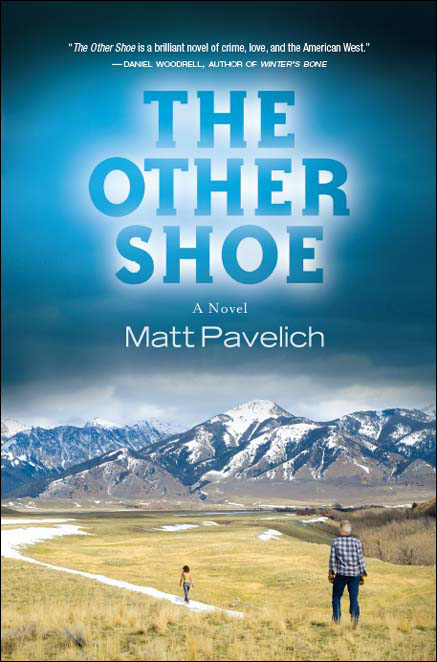
The Other Shoe
A Novel
- اطلاعات
- نقد و بررسی
- دیدگاه کاربران
نقد و بررسی

Starred review from January 30, 2012
Pavelich’s haunting, beautifully observed second novel opens with Calvin Teague, an Iowan drifter, at the mercy of the harsh elements of the Montana open road. Teague is discovered exhausted, dehydrated, and missing a shoe by Karen Brusett, who takes him to her remote trailer, where the two get close. But when Teague winds up bludgeoned to death, possibly with a cane belonging to Karen’s arthritic husband, it stirs up all kinds of suspicion and unrest in small-town Montana, the novel’s evocatively desolate backdrop. As Pavelich unfurls his characters’ histories, the plot oscillates between alternating perspectives in a clever crime drama. Karen’s husband, now the prime suspect, is enigmatic in his refusal to speak about the murder, while public defender Giselle Meany works diligently to prove his innocence. Testimony from a diner waitress, a lack of physical evidence, and a nail biting courtroom sequence pales in comparison, however, to the harrowing final pages. Though Pavelich’s pacing could at times use a shot of espresso, this second novel even surpasses the allure and charm of his first, 2005’s Our Savage. Agent: Ellen Levine, Trident Media Group.

April 15, 2012
On an isolated slope in Montana's Rocky Mountains, at a place called Fitchet Creek, Calvin Teague lies dead. Calvin is dead, but he wasn't murdered. Pavelich's (Our Savage, 2004) novel isn't a mystery. It's a literary study of the lives of outliers, a story of love, of sacrifice, of a man with a sense of responsibility as clear as the mountain air. Calvin's car quit near the hamlet of Red Plain. No money for repairs, he'd set out afoot westward. But Calvin was inept in the wilderness, nearly drowned in a river, only to be discovered stumbling along a highway by Karen Brusett, a young woman near his age. Karen's husband is Henry Brusett, a solitary man who found his worth in the hard, honest work of harvesting timber, work that stranded him in middle-age, fractured in body and personality. Addicted to pain pills and solitude, Henry cares platonically, guiltily, for Karen, not half his age, needing only "the favor of seeing her... of attending so closely to her existence as to know her shifting essence." Karen, raised in an atmosphere of neglect and piety, latched onto Henry because he alone saw her as a person of value, of potential. Pavelich masterfully gives characters life: naive Calvin, dead out of misdirected desire; the damaged and mismatched Brusetts, wanting only the peace of their mountaintop Eden; Hoot Meyers, county attorney; and Giselle Meany, public defender and perplexed single mother whose dedication overrides ambition. After Calvin is found dead, Henry is arrested. The second half of the narrative chronicles his incarceration and Karen's reaction. Marred only by one unresolved narrative thread, Pavelich's novel is an accomplished and affecting story of love and loyalty, accountability and honor. The powerful concluding scenes race like thunderstorms across the Rockies in this arresting work.
COPYRIGHT(2012) Kirkus Reviews, ALL RIGHTS RESERVED.




دیدگاه کاربران